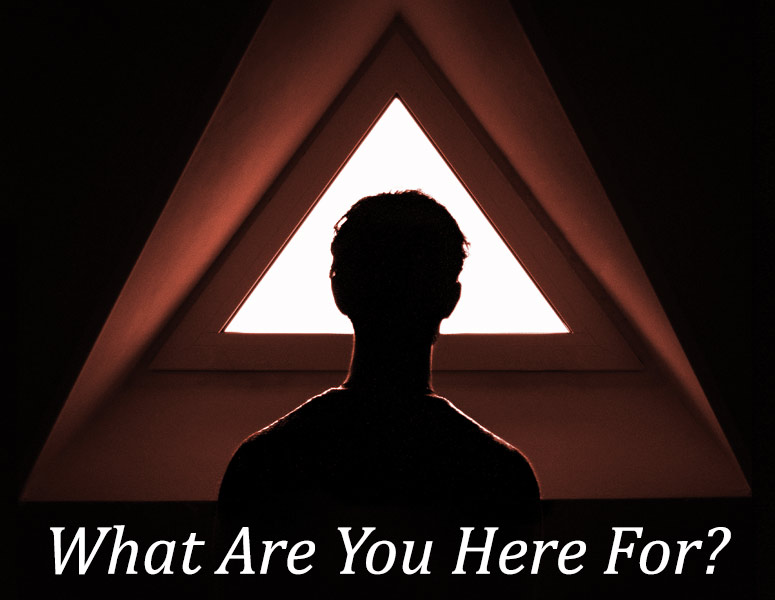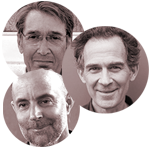mistakes & allowing: “… our failures, disappointments, mistakes…are all part of this whole fabric in some essential way …” and “… life is in charge, not me. We must discover the willingness to allow life to unfold at its own pace, in its own way …” ~ Joan Tollifson
Today, Joan Tollifson concludes her deep dive into “embracing what is” (that began with Embracing What Is – Beyond Self Improvement) … by looking at the inherent gifts of mistakes and “allowing” – challenging and difficult as that sounds – or even clichéd – some might even claim it is too elementary 🙂 … yet the puzzling reality is that truly accepting what is seems to be elusive – one of the paradoxes of life! … but an earnest exploration offers the possibility of learning from mistakes leading to opportunities … just like it reveals the “gems” of simply allowing what is …
This post – part 8 – also concludes this series exploring her book, Death: The End of Self-Improvement, through chapter excerpts. Scroll to the bottom of the post for the background of this series and a summary of Parts 1 through 7 … plus the full attribution of the source for this content – graciously provided, for our use, by Joan (and her publisher New Sarum Press) … for which we are most grateful.
The “Gem” Within Mistakes & “Allowing” …
We don’t ever reach any ideal perfection that we can imagine, or if we do, it doesn’t last. So any true aspiration must be balanced by the realization that life is in charge, not me. We must discover the willingness to allow life to unfold at its own pace, in its own way, the willingness to fail again and again, without taking that personally and turning it into a story of personal lack or a reason for self-hatred. Shunryu Suzuki said, “The life of a Zen Master is one continuous mistake.” Or Zen teacher Elihu Genmyo Smith: “Mistake after mistake is the perfect way.” Our failures, disappointments, mistakes, and even humanity’s most horrific actions, are all part of this whole fabric in some essential way. We know from our own experience that our most difficult and challenging experiences are often the ones that open us up and teach us the most.
It’s not uncommon for people who take up some form of non- duality to get stuck in the absolute for a while—and in some cases, forever. They get the mistaken idea that they aren’t supposed to have goals or preferences of any kind, that they shouldn’t want anything to change. They keep asserting over and over that there is no self, no choice, nothing to do—that everything is perfect as it is, that nothing is even happening. But it’s quite natural to want to change what hurts. And it’s quite useful to be able to see when we are making a mistake or missing the mark. Of course, we are never out of integrity in the absolute sense, and in that larger sense, every mistake is perfectly placed, but in the relative world of everyday life, the ability to identify mistakes and correct them is vital to our survival as individuals and as a species. It’s part of how life is functioning and evolving. Perfection isn’t a matter of not making any mistakes. It’s about the ability to learn from them, to get up and keep going, to not take mistakes personally or get lost in shame, guilt and self-hatred, to start fresh Here-Now.
Sometimes when we have an idea that “everything is perfect as it is,” we forget that working to improve things is part of what is. We leave ourselves and our own abilities, inclinations and actions out of the picture in some way. So, nonduality doesn’t mean we shouldn’t meditate or pray or take vows or see a therapist. It doesn’t mean we shouldn’t go to the gym and exercise, or that we leave a flat tire flat forever because we are “allowing everything to be as it is,” or because “we are powerless and have no choice.” That is a misunderstanding. And waking up from our entrancement in thought, from our habitual tendency to mistake the map for the territory, doesn’t in any way mean that we can’t, or shouldn’t, think or conceptualize or use maps. It simply points to how all these activities come from life itself, not from the phantom self. All our ideas of success and failure are just that, ideas.
The peace and freedom we long for is found in one place only: Here-Now. Of course, we can’t make ourselves stop seeking and resisting on command, and any attempt to do so is only another form of seeking and resisting. All that can happen is to see this habitual pattern of seeking and resisting whenever it arises. We can’t even make that happen—but it does happen, when it does.
It’s fine to have practical goals, such as getting a college degree. But we don’t need to get hooked on the fantasy that we will be happy only if and when we get that degree, or that we need that degree to be happy. Our attention can be on the present moment even as we move toward the goal.
Awakening is not about denying relative reality. What happens in the world both matters and doesn’t matter. As a human being in the play of life, it breaks my heart to see someone torturing an animal or abusing a child. It breaks my heart to remember some of the insensitive, abusive or hurtful things I have done in my life. Having the bigger view, the absolute perspective, helps me to see all of this in a bigger context, to hold it more lightly, more compassionately, more gently, to be more flexible, open-minded and open-hearted—to see beyond the story that the world is going to hell and I have to fix it, or that I am a terrible person who should crawl into a hole and die. To recognize how ephemeral and insubstantial, how subjective and dreamlike it all is, is very liberating. But it doesn’t mean I don’t care, that my heart doesn’t break sometimes, or that I may not be moved to act.
In Zen, there are a bunch of precepts, and they say that from the absolute perspective, it is impossible to break them, and from the relative perspective, it is impossible not to break them. Just by being alive, we break them. Not killing, the first precept, is broken every time we eat, every time we take a step, every time we wipe our forehead, every time we inhale. Life feeds on life.
But in the absolute sense, no-thing is born and no-thing dies; so we can never actually kill anything. From the absolute view, there are no mistakes. From the relative view, there are many mistakes, and it’s important to recognize them, correct them, learn from them, apologize for them, or whatever is appropriate in the situation. We cannot land on either side of the equation—both perspectives are important.
Seeing this, we begin to love the imperfections in life, the mistakes, the defects, the things that don’t go our way, the upsets. We begin to see the Beloved everywhere, even in our disappointments and disturbances, maybe even especially there, where we would least expect to find it.
I’ve heard that when Katagiri Roshi was dying, he said, “Enlightenment is not dying a good death. Enlightenment is not needing to die a good death.” Even if you are screaming in pain, or yelling in anger, or having the thought, “How am I doing? Is this a good death? Am I impressing my students?”—even that is simply what is. It’s not personal. When it is seen as impersonal weather, a whole new moment opens up.
There is no trace from the past, and there is no one here to take delivery. The universe begins anew.
~ Joan Tollifson
This multi-part series is an exploration of Joan Tollifson’s book Death: The End of Self-Improvement … where she talks about the “only actuality there is” … the “aware presence in which the whole universe is contained” … that which has “no beginning and no end” … the “ever changing process inseparable from everything else in the universe” … that which is “gone forever and {always/still} right here” …
… Part 1 was the entire opening chapter Dissolving … and
… in Part 2 (excerpts from chapter one titled Stepping Through the Mirror) Joan explored death by talking about … That which “cannot depart from itself ” … the “felt spacious openness at the very core of our being” … and more.
… in Part 3 (the ongoing excerpt from Stepping Through the Mirror) Joan delved deeper into awakening .. or what she terms unbroken wholeness : “… the ever-present actuality … To awaken is to recognize the sacred everywhere, to live in devotion to this luminous presence, to wake up again and again from the dream of what we think is happening …”
… In Part 4 (the concluding excerpt from Stepping Through the Mirror) Joan considers the “natural next” question of what happens after death? … and addresses the subject of near-death experiences, reincarnation, and memories of past lives
… In Part 5 (excerpts from the chapter Beyond Self-Improvement: Embracing What Is) Joan begins an in-depth exploration into “embracing what is” : “… true healing, transformation and liberation begin with the simple acceptance of this moment and this world, just as it is … embracing imperfection, allowing everything to be as it is, loving what is—this is the gateless gate to a fresh start and the utterly new. Oddly enough, this is the secret of freedom …”
… In Part 6 (ongoing excerpts from the chapter Beyond Self-Improvement: Embracing What Is), Joan continues her in-depth exploration of “embracing what is” by considering the story of “me” – the story of “choiceless choice” …
… In Part 7 (ongoing excerpts from the chapter Beyond Self-Improvement: Embracing What Is), Joan continues her deep dive into “embracing what is” … by looking at the inherent challenges or “traps” in self-improvement – even the phrase “self-improvement” is problematic … or the perplexing tale of the “elusive obvious” 🙂 …
All italicized text is from Death: The End of Self-Improvement by Joan Tollifson and is published here with her (and the publisher New Sarum Press’) generous permission.
Here are all of Joan’s posts on Stillness Speaks … and her website – full of deeply insightful and valuable content for your journey.
=== ==== ===
India is undergoing a humanitarian crisis brought upon by the ravaging resurgence of COVID-19 … if you don’t know about this or want an update, here is a recent New York Times post detailing What to Know About India’s Coronavirus Crisis … so, to do our small part to help, we are providing THREE vetted sources that can be used to help provide relief to India … we have donated personally and also as Stillness Speaks to PATH, CARE, and some of the GoFundMe campaigns below …
Despite the financial challenges that are amongst us all, if your situation allows you to donate then please visit one of the following sources … and contribute whatever is possible …
… Deliver oxygen where it’s needed the most through PATH – a global team of innovators working to accelerate health equity so all people and communities can thrive …
… Provide essential hospital services, more health workers, additional beds, oxygen supply, and much more through CARE (and their CARE India chapter) – for 75 years, CARE has led the way to a better life for the world’s most vulnerable people ….
… Donate to India COVID-19 fundraisers on GoFundMe – all fundraisers have been verified by GoFundMe’s Trust & Safety team and will be updated as new fundraisers are created and verified. All GoFundMe fundraisers are backed by the GoFundMe Guarantee which ensures that all funds on this page will go to those affected by India’s COVID-19 surge …
Helping those in extreme need is the “order of the day” …
THANK YOU!
=== ==== ===
All italicized text above is from Death: The End of Self-Improvement by Joan Tollifson and is published here with her (and the publisher New Sarum Press’) generous permission.
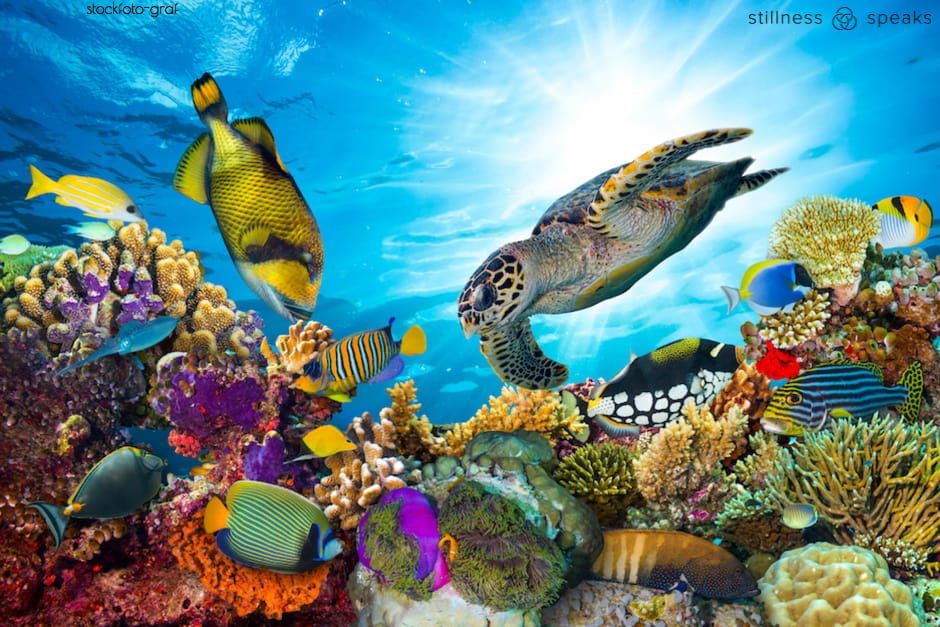


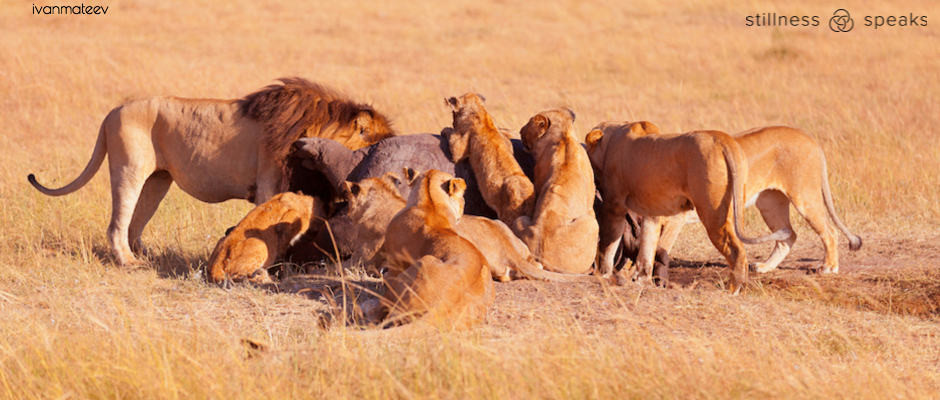
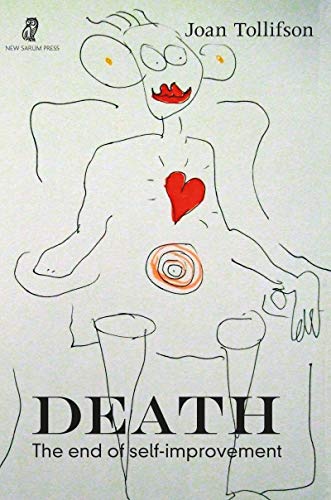 This multi-part series is an exploration of
This multi-part series is an exploration of 




